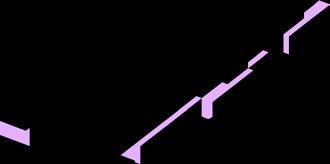 Laura González Rabilero
CV PORTFOLIO
Laura González Rabilero
CV PORTFOLIO
I began my architecture studies six years ago at the University of Alcalá and I have completed the Master’s Degree in architecture at the Higher Technical School of Architecture of Granada. However, my passion for the world of art did not begin with this discipline, but with music, which has accompanied me since childhood.
I entered the Alcalá Conservatory of Music at the age of ten with the speciality of viola, where I have grown as a person, surrounded by discipline, rehearsal routines and concerts.
Laura González Rabilero architect and urban planner violist
date of birth April 27, 1998 nationality Spanish
lauragonzalezrabilero@gmail.com
+34 673471427
C/Salamanca 10 6C, 28804 Alcalá de Henares, Madrid
languages
Spanish English French
Mothertongue
Fluent
I finished my professional degree in the specialty of viola in 2019, after eleven years of study. The last courses I combined with a new specialty, the piano.
In 2019-2020 I took my fourth architecture course at the University of Valparaíso, in Chile. It has been an incredible experience where I have been able to fulfill my dream of touring South America in search of the works of Lina Bo Bardi in Brazil and Luis Barragán in Mexico.
Autocad Rhino Photoshop Sketchup Indesign
Revit
2008 - 2019
2019 - 2022
2016 - 2021
2021 - 2022
2015 - present
2019 - 2020
2021-2022
July 2022
January 2023present
academic education
Graduated as a Professional at the Music Conservatory of Alcalá de Henares, specializing in viola
Graduated from Elementary at the Music Conservatory of Alcalá de Henares, specializing in piano
Graduated in Fundamentals of Architecture and Urbanism, School of Architecture of Alcalá, UAH
Graduated from Master’s Degree in Architecture, School of Architecture of Granada, UGR
experience
Preparer for entrance exams to the Professional Conservatory of Music
Internship in the Fantuzzi and Rodillo Architecture studio for the development of various projects in Valparaíso, Chile (12 months)
Work on architectural design projects in the “Secades Arquitecto” studio (12 months)
Participation AxA CAMPUS, 6th Seminar on Architecture and Territory directed by Eugeni Bach
Architect at Chico Muñoz Architecture studio in Málaga. Development of projects of different scales and typologies from concept to execution
competitions
December 2019
April 2020
May 2020
April 2021
May 2022
3rd Edition Proyectar a Conciencia Competition (Chile)
DOCEXDOCE Competition: “Living to tell the tale”
reTHINKING Competition #22. “Uyuni Salt Flat Shelter” (Bolivia)
Collaboration with Ricardo Lajara architect for Public Competition, Library in Nerja (Spain)
Milan Navilgi Canal Challenge. Bee Breders Architecture Competitions courses
October 2018
March 2019
November 2021
May 2022
November 2022 - present
Advanced Photoshop and Illustrator course (20 hours) taught by Mtres studio
Advanced Sketchup course (20 hours) taught by Mtres studio
Revit course at the European School of Architecture (30 hours)
Course on Calculation of Structures with CYPECAD at es+arquitectura (45 hours)
Official Autodesk Architectural Modeling BIM Master at 24studio (170 hours)
cv master’s final
• 01_Afluentes
urbanism
• 02_Delicias-Covid
• 03_Análisis Delicias
competitions
• 04_Arbotante
• 05_Culebrinas amarillas
• 06_Milano transversale
• 07_Hincahuasi Lock

Tutors:
Elisa Valero
Rafael Soler
Miguel Martínez Monedero
Location: Granada, Spain
It is deduced and reflected with the proposal that the housing programs understood in a three-dimensional way are the most ambitious to include in them the complexity of the contemporary metropolis, since they make up a complex city formed by the superposition of layers and strata, thus understanding the project in its entirety thanks to a section that reflects various forms of grouping
It is established as a fundamental basis that the variation and diversity must be given by the choice and decisions of the users, and not by a mere design desire. With a previous study and the design of the support and all its variants, and granting users the maximum possible control in distribution and extension, an attempt is made to achieve the identification of the inhabitants with the place they inhabit, aspiring to achieve the qualities of the single-family housing in collective constructions within a responsible density.
It is understood that in an attempt to renaturalize the city, a complete reading of the territory must be made, deciphering the historical processes that lead to the city that we have today to reverse situations of urban suffocation and disconnection in opportunities to integrate landscapes and green routes that improve the quality of life of the inhabitants.























































































posible ampliación en la excavación . . .







. . . Barrio de Doctores . .


































































































































Cerramiento fachada
1.- Revestimiento ondulado de policarbonato de una sola piel Sinus
76/18. ancho de una hoja = 1260 mm (placa Lexan).



2.- Conjunto de hoja corredera de estructura tubular de metal.
3.- Montante de acero galvanizado para cuatro raíles.


4.- Tubo en "C" de acero galvanizado para sujección de cerramiento
exterior.
5.- Ventana corredera SOLEAL GY 55 de aluminio extruido de aleación
EN AW-6060 según norma EN 573-3 y con control dimensional según la norma EN 12020-2, realizado con aluminio reciclado de la marca
Hydro CIRCAL, provistos de rotura de puente térmico realizada con varillas de poliamida 6.6 reforzadas con fibra de vidrio y fijadas a los perfiles de aluminio.
6.- Panel rígido de poliestireno extruido, de superficie lisa, de 80 mm de espesor, conductividad térmica 0,029 W/(mK).
7.- Sección metálica en "C" de revestimiento exterior 85 mm x 550 mm y 5 mm de espesor.
8.- Barandilla metálica de 1105 mm de altura con separación entre barrotes de 110 mm.
9.- Revestimiento de fachada de aluminio de una sola piel PO 76/18.
10.- Placa de yeso laminado, e=15 mm pintado según plano de albañilería.
11.- Panel rígido de poliestireno extruido, de superficie lisa y mecanizado lateral a media madera, formado por dos placas e=2x42,5 mm, contrapeando las placas y sus montantes, solapando las juntas y evitando puentes térmicos en la fachada ventilada.
12.- Parasol corredero en fachada sur formado por vidrio fotovoltaico que permite pasar la luz parcialmente de dimensiones 1250 mm x 2800 mm
13.- Parasol corredero en fachada sur formado por vidrio fotovoltaico que permite pasar la luz parcialmente de dimensiones 1250 mm x 2800 mm
14.- Tornillo de acero galvanizado calidad 6.8 según UNE-EN ISO





898-1, tipo M-7,5, de cabeza hexagonal y rosca métrica total según DIN
931, de 7,5 mm de diámetro y 130 mm de longitud con anillo de fin de carrera.
15.- Subestructura metálica del parasol corredero anclada a forjado formada por doble sección en "C" de 75 mm x 55 mm y 5 mm de espesor.
Sistema de depuración de aguas residuales E : 1/50
Forjado metálico
16.- Acabado de suelo de microcemento con resina de poliuretano y tratamiento antideslizante (10 mm).
17.- Mortero de regulación autonivelante.
18.- Suelo radiante.
19.- Junta. 20.- Panel rígido de poliestireno extruido, de superficie lisa, de 40 mm de espesor, conductividad térmica 0,029 W/(mK).
21.- Chapa colaborante INCO 70.4 Colaborante, 0,75 mm, 12,0
cm.
22.- Hormigón armado HA-30, Yc=1.4








23.- Mallazo de reparto.
24.- Refuerzo de negativos.
25.- Cartela de rigidización.
26.- Viga IPE 240.
27.- Jácena formada por 2 UPN 240 en cajón cerrado.
28.- Pilar formado por 2 UPN 240 en cajón cerrado.
29.- Recuperador de calor.
30.- Perfil de acero galvanizado, en U, de 30 mm para fijación compuesta por taco y tornillo 5x27. Cuelgue para falsos techos suspendidos.
31.- Techo suspendido formado por una estructura de perfiles de chapa de acero galvanizado a base de perfiles Pladur®
T-47/T-45 debidamente suspendidos del forjado por medio de horquillas Pladur® T-47/T-45 + varilla roscada Ø 6 mm, y apoyados en perfiles Pladur fijados mecánicamente en todo el perímetro.
32.- Panel rígido de poliestireno extruido, de superficie lisa, de 40 mm de espesor, conductividad térmica 0,029 W/(mK).
33.- Lámina impermeabilizante

34.- Plots para suelo técnico. 35.- Baldosa de cemento con resina de poliuretano y tratamiento antideslizante.
36.- Suelo de bandejas de chapa perforada galvanizada.
37.- Panel de rejilla metálica electrosoldada galvanizada "tramex".
38.- 2 UPN-400 separados soldados a ambos lados del pilar para sujección de la galería exterior.
39.- IPE 360 de acero galvanizado (no estructural).
c o p i s t e r í a
depuradora urbana
arqueta de registo
eneas río Beiro
Fachada sur E : 1/50
Cubierta vegetal intensiva
40.- Vegetación intesiva: huerto.
41.- Sustrato intensivo.
42.- Lámina drenante rellena DiaDrain-60H.
43.- Geotextil de separación VLF.
44.- Aislamiento térmico XPS.
45.- Fieltro de protección mecánica VLU-500.
46.- Membrana impermeabilizante resistente a las raíces.
47.- Borde separación de grava.

48.- Caja de registro
49.- Protector de grava.

50.- Hormigón de formación de pendiente.
51.- Perfil de acero sección en Y de remate de cubierta ajardinada y sujeción de barandilla de cubierta de dimensiones 200x400x30mm.
52.- Plots niveladores 250 mm.
53.- Pavimento laminado exterior, de lamas de 1200x190 mm, resistencia a la abrasión AC1, formado por tablero base de HDF laminado de pino e=35 mm.
Cerramiento fachada
1.- Revestimiento ondulado de policarbonato de una sola piel Sinus
76/18. ancho de una hoja = 1260 mm (placa Lexan).
2.- Conjunto de hoja corredera de estructura tubular de metal.
3.- Montante de acero galvanizado para cuatro raíles.
4.- Tubo en "C" de acero galvanizado para sujección de cerramiento
exterior.
5.- Ventana corredera SOLEAL GY 55 de aluminio extruido de aleación
EN AW-6060 según norma EN 573-3 y con control dimensional según la norma EN 12020-2, realizado con aluminio reciclado de la marca
Hydro CIRCAL, provistos de rotura de puente térmico realizada con varillas de poliamida 6.6 reforzadas con fibra de vidrio y fijadas a los perfiles de aluminio.
6.- Panel rígido de poliestireno extruido, de superficie lisa, de 80 mm de espesor, conductividad térmica 0,029 W/(mK).
7.- Sección metálica en "C" de revestimiento exterior 85 mm x 550 mm y 5 mm de espesor.
8.- Barandilla metálica de 1105 mm de altura con separación entre barrotes de 110 mm.
9.- Revestimiento de fachada de aluminio de una sola piel PO 76/18.
10.- Placa de yeso laminado, e=15 mm pintado según plano de albañilería.
11.- Panel rígido de poliestireno extruido, de superficie lisa y mecanizado lateral a media madera, formado por dos placas e=2x42,5 mm, contrapeando las placas y sus montantes, solapando las juntas y evitando puentes térmicos en la fachada ventilada.
12.- Parasol corredero en fachada sur formado por vidrio fotovoltaico que permite pasar la luz parcialmente de dimensiones 1250 mm x 2800 mm
13.- Parasol corredero en fachada sur formado por vidrio fotovoltaico que permite pasar la luz parcialmente de dimensiones 1250 mm x 2800 mm
14.- Tornillo de acero galvanizado calidad 6.8 según UNE-EN ISO
898-1, tipo M-7,5, de cabeza hexagonal y rosca métrica total según DIN
931, de 7,5 mm de diámetro y 130 mm de longitud con anillo de fin de carrera.
15.- Subestructura metálica del parasol corredero anclada a forjado formada por doble sección en "C" de 75 mm x 55 mm y 5 mm de espesor.
f r u t e r í a
Longitudinal section

E : 1/50



Curse: Urban planning IV
Tutor: Alicia Gómez
Location: Arganzuela, Madrid, Spain
Team members:
Andrea Cuéllar Álvarez
Marta Muñoz Pozo
Laura González Rabilero
It is an urban project in a void “between tracks” in the Arganzuela neighbourhood, which was a space of urban rupture and discontinuity.
In terms of mobility, “the city of the pedestrian” is defended with the projection of circulation axes designed from the promenade with a boost from public transport and a reconfiguration towards these axes.
Regarding housing, an optimal density is studied and the existing rupture between the old living fabric of Delicias and the new islands is finished, in search of an urban ecosystem.
The identity of this neighborhood is enhanced with a recovery of its industrial fabric, injecting facilities and services into it.
The public space tries to connect with other green spaces in the city in order to generate a network of natural spaces on strategic routes. A large pedestrian language programmed and loaded with all kinds of urban activities colonizes the proposal between the building.
Diagnostic plane: Madrid-Delicias_study zone
E : 1/20.000




Project plant: Madrid-Delicias
E : 1/20.000





Curse: Urban Planning III
Tutor: Jose Juan Barba
Location: Arganzuela, Madrid, Spain / De Omval, Amsterdam, Holland
Team members:
Andrea Cuéllar Álvarez
Marta Muñoz Pozo
Laura González Rabilero
In-depth analysis and diagnosis of the landscape-territory built or to be built in the study area of Delicias, Madrid.
Starting from the idea of a consolidated city and its disintegration towards the edge or periphery, consequence of the growth in the city of the 20th century, its multifocality, the generation or appearance of multi-centers that compete with the center that generated the city, aims to understand how these areas work and establish what their relationship is with respect to the rest of the city, whether they are multiple or unique, how they are made up of the existing city or how they arise in the new growth of the metropolis, their consolidation and the recognition of their existing morphologies to propose stitching solutions.
In the first place, the urban reality of Madrid is analyzed, paying special attention to the urban growth that pressures it or has been proposed.
The second part focuses on the study area of Delicias, performing a comparative analysis with the De Onval neighborhood in Amsterdam, detecting open areas due to railway infrastructures currently pending consolidation or in the process of transformation, explaining their relationship with the centres.

Anthropized physical environment

E : 1/95.000

Anthropized physical environment: “active” and “receptacle” occupied spaces
E : 1/50.000


Comparative analysis of selected areas: Amsterdam, De Omval
E : 1/10.000

Comparative analysis of selected areas: Madrid, Delicias
E : 1/10.000


Competition: Proyectar a conciencia 3.0
Tutor: Osvaldo Bizama
Location: Playa Ancha, Valparaíso, Chile
Team members:
Pedro Secades Alonso
Laura González Rabilero
The “ELEMENTAL” complex is a social housing built in the Playa Ancha sector, Valparaíso. One of the main problems affecting the complex is the lack of urbanization of the plots. In relation to the lack of urban planning, poor accessibility arises, both to the complex through its two entrances and to the interior of the dwellings, given that this is done by means of stairs.
One of the premises of the project is universal accessibility. For this, it is proposed to remove all kinds of architectural barriers, the stairs are replaced by accessible ramps.
For its part, public space is redefined in use and limits. A “Jungle” is proposed as an oasis between blocks that allows a relaxed walk when arriving at the complex. This Jungle is defined with different levels of vegetation.
The “Flying Buttress” consists of the design of a new facade that aims to solve the various problems that afflict the living place. This is defined as a self-supporting structure (wood) with minimal supports (metal), this structure is divided into vertical tablets composed of four types of module.




Longitudinal section: pre-existence_Elemental housing complex_Valparaíso
E : 1/75


Longitudinal section: proposal_Elemental housing complex_Valparaíso E : 1/75


pre-existence image_Elemental housing complex_Valparaíso

proposed image_elemental housing complex_Valparaíso


Competition: Municipal library
Location: Nerja, Málaga, Spain
Team members:
Diego Martín de Torres
Ricardo Lajara Olmo
Laura González Rabilero
The proposal responds to a dense library and archive program on a narrow site facing the Mediterranean Sea.
Located in the heart of the historic center of Nerja, next to the Church and the famous viewpoint of the town, the library is conceived as another point of public meeting, allowing a free ground floor to be transformed and all kinds of activities can take place in it. .
The yellow color runs through the project from a lemon tree that illuminates the basement, necessary to incorporate the archive, the south facades prepared to receive a vegetable filter that protects from the sun, to the terrace, where the yellow culverins unfold like bleachers- viewpoint, turning this into the surprise culmination space of the proposal.
North Delicate look”
As a result, one day’s

South elevation

Playing with the culverins...
The vegetation, like a second skin, protects us from direct solar radiation to the south, without impeding the view of the Mediterranean

North elevation
Delicate light metal casing that envelops “the result, more than 100 changing facades in day’s speech

Longitudinal






Competition: Milan Navigli Canal Challenge (Bee Breeders)
Location: Milan, Italy
Team members:
Sergio Pirez Porras
Pedro Secades Alonso
Paula Cuesta Pérez
Laura González Rabilero
The proposal integrates the Peschiera with the new cross flow of water that will connect the heart of the university with the Giardini, generating a public space around it at the level of the Navigli and a multifunctional open space in the central courtyard, with two sculptural ramps that embrace intervention and connect the city with the university
The urban project recovers the original shape of the Laghetto, now forming part of the city’s water cycle, collecting the waters from the left side of Navigli.
The project also takes advantage of the gaps between the green mass of the Giardini and a second Larguetto apperas to collect the waters from the right side. This element also serves as a catalyst for the pedestrian flow towards the new public spaces linked to the Navigli.
In the southern part of the Navigli, the promenade becomes smooth and stepped, a new multifunctional building is proposed in relation to the university and public space. In the more private space between the Basilica and Ca’Granda, a new pavilion for the bookstore is added that embraces the small canal space.
Finally, the ruins of an ancient building become the Navigli interpretation center and the gardens of the past are recovered in a contemporary language.


Overall plant: proposal for the Universitá degli Studi
E : 1/100



HINCAHUASI LOCK_Uyuni Salt Flat Shelter

Competition: reTHINKING Competition #22. Uyuni Salt Flat Shelter
Location: Salar de Uyuni, Bolivia
Team members:
Pedro Secades Alonso
Laura González Rabilero
Icahuasi Island, which in Quechua means “the house of the Inca”, is a Bolivian island located in the central part of the Salar de Uyuni, department of Potosí.
Due to its central and elevated position in the Salar, it allows a 360º view of its limits, producing a feeling of awe.
Taking into account the above, the altitude and the difficult ascent to the top, we proposed a footbridge with a system of locks that allow the user to undress and undress during a more leisurely and paid ascent of breaks, meetings or swimming pools, depending on the season of the year.










